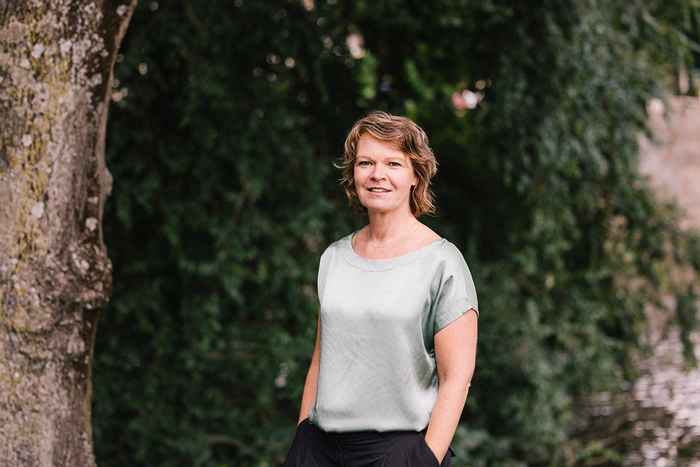Rachel Spronk has been appointed as professor of Anthropology of Sexuality and Gender at the University of Amsterdam's Faculty of Social and Behavioural Sciences. 'The beauty of this topic is that we are all experts by experience, so it's very personal. At the same time, gender and sexuality are political issues. This chair aims to analyse how we see and understand ourselves from the messy and never straightforward everyday practice.'

Political and personal dimensions often collide
'In our society, gender and sexuality play a crucial role in the social and moral order,' Spronk states. 'Gender roles are often seen as crucial to the functioning of society, Like family being "the cornerstone of society". Sexual relationships determine how we fill in the gender and sexual identity of individuals.' However, gender and sexuality are also incredibly personal aspects of our lives. 'As such, these political and personal dimensions often collide.'
In her new position, Spronk aims to centre the analysis of gender and sexuality issues around experiences and practices in daily life. 'Since we are all experts by experience, we all have opinions on this subject, especially with regard to how we see and understand ourselves. What can we learn from the interaction between the personal and the political?'
Ethnography is a research method that allows scientists to study cultures and communities through observation and participation. It enables them to collect detailed qualitative data about the daily life, traditions and beliefs of the studied group, providing a deep understanding of the subject group.
Studying daily practice
According to Spronk, anthropology offers a way to study the messiness, contradictions and tensions of daily practice. 'Using the ethnographic research method, we can analyse the dynamics between gender, sexuality and society and study current cultural, political and socio-economic issues.'
Sexual behaviour and erotic practices
The fact that the chair is named Anthropology of Sexuality and Gender, rather than Gender and Sexuality, is very significant to Spronk. 'If you search Google Scholar, there is a lot of research on sexuality, often in the context of topics such as health, human rights and the influence of social media. There is much less research that observes sexual behaviour and erotic practices - the affective and more sensory aspects of sexuality, so to speak. This chair also aims to create more space for that.'
Decolonising the production of knowledge
Lastly, Spronk hopes to incorporate the experiences of people in the Global South into theory formation. She asserts that how sex, erotic attraction and gender are interconnected in different cultures is not just an interesting anthropological fact but a crucial starting point for understanding and questioning how we currently theorise and explain things.
'In this way, I hope to reflect on the current feminist analysis and the knowledge on which it is based. Currently, the Global North functions as the baseline for our way of thinking. But, as a result, many frameworks are not suitable for analysing the relationships and experiences of women and men in the Global South. For example, the way repression and personal choices that contradict it go hand in hand, as I learned during my research in Ghana, Kenya and Senegal.'
With this form of 'theorising from the South', Spronk hopes to decolonise the production of knowledge and bring about a new perspective in which the Western culture that is predominant in Europe and North America is just one of many.
About Rachel Spronk
Spronk was trained as an anthropologist and now conducts interdisciplinary research on culture, gender and sexuality. In 2006, she obtained her doctorate degree cum laude from the University of Amsterdam (UvA) with a dissertation on sexuality and identity in the middle-class population in Nairobi, Kenya. From 2005 to 2021, she served as the programme director (and founder) of the UvA's Master programme in Gender, Sexuality and Society. From 2013 to 2017, Spronk was the scientific director of the Amsterdam Research Centre for Gender & Sexuality (ARC-GS). Her research primarily focuses on the intersection of three scientific fields: anthropology, gender and sexuality studies, and African studies. She critically examines the historical trajectories that have shaped the present and influenced the production of knowledge about gender and sexuality, and she places the daily experiences of people at the centre of theoretical models.






